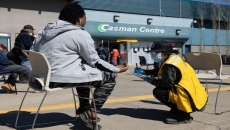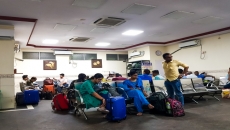As of Monday India's rapidly growing coronavirus cases have made the nation the pandemic's second-worst-hit behind the United States all in its urgency to recover from the hard hit economic shock due to the COVID-19 pandemic. The close to 100,000 cases added to India's tally put it ahead of Brazil with 4.2 million cases.
According to John Hopkins University, India is now only behind the United States, where more than 6.2 million people have been infected. India's Health Ministry on Monday also reported 1,016 deaths for a total of 71,642, the third-highest national toll. The largest democracy in the world with 1.4 billion people has been recording the world's biggest daily increases in coronavirus cases for almost a month.
Even after 2 million new cases in August and the virus spreading through the country's rural areas, the government of India has continued to ease COVID-19 restrictions in hopes to recover its sinking economy.
On Monday, the Delhi Metro that serves India's thriving capital New Delhi and adjacent areas started operating after five months. Only asymptomatic people were allowed to get on the trains, with masks, social distancing and temperature checks mandatory. Delhi Metro took to Twitter to welcome passengers after the long hiatus.
The Blue and Pink lines resumed services today. Slowly and steadily, Delhi Metro will be back to take you places! #MetroBackOnTrack pic.twitter.com/eG5JA1QM4w
— Delhi Metro Rail Corporation (@OfficialDMRC) September 9, 2020
The capital's metro train network is India's largest rapid transport system. Before closing down in March, the packed trains carried an average of 2.6 million passengers daily. The reopening comes after India's economy shrank faster than any other major nation's, nearly 24 per cent in the last quarter.
Upon Prime Minister Narendra Modi's lockdown announcement millions lost their jobs instantly and tens of thousands of migrant workers, out of money and fearing starvation, poured out of cities and headed back to villages. The migration not only drained out India's economy but also spread the virus to the far reaches of the country.
Now, as the cases surge, most of the country, except in high-risk areas, has already opened up and authorities say that they have little choice. The top official of India's federal health ministry at a news briefing last week. "While lives are important, livelihoods are equally important".
Almost three fifths of India's active cases are coming from the states of South India Andhra Pradesh, Tamil Nadu, Karnataka. Experts are worried and fear that the reopening of the metro will bring about another surge in cases.






